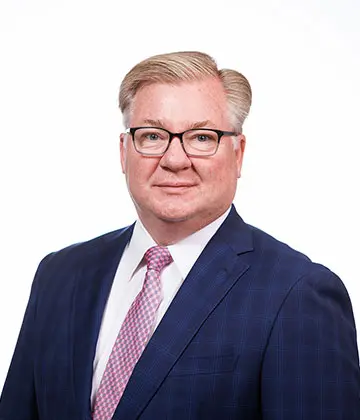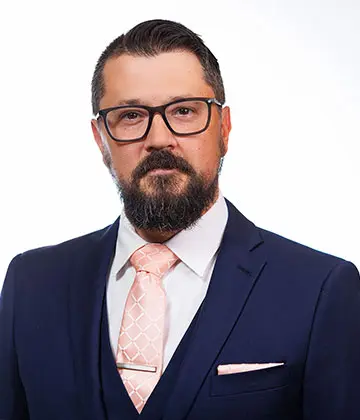The U.S. government considers healthcare fraud a top enforcement priority, recovering billions of dollars each year from medical providers. If you are under investigation for healthcare fraud, your first and most important step is to consult a skilled Texas healthcare fraud Attorney who understands how federal cases are prosecuted. The federal government has a conviction rate of over 90 percent in the cases it prosecutes.
If you are under investigation, agents are not looking for both sides of the story. They are actively working to build a case against you.
Securing experienced legal representation as early as possible can make all the difference. A single misstep, a poorly worded response to an investigator, or a delay in getting help can affect your medical career and personal freedom in serious ways.
Take the first step in your defense by calling Whalen Law Office at (214) 368-2560 for a confidential consultation.
Table of Contents
- Why You Need a Former Prosecutor for Healthcare Fraud Defense
- Understanding the Federal Healthcare Fraud Investigation Process
- Key Federal and State Laws in Healthcare Fraud Prosecutions
- Federal Statutes Used in Healthcare Fraud Cases
- Texas State Healthcare Fraud Charges
- Common Healthcare Fraud Schemes Prosecuted in North Texas
- Federal Penalties for Healthcare Fraud Are Severe
- How a Strategic Defense Can Fight Healthcare Fraud Charges
- Under Investigation for Healthcare Fraud? We Are Here to Help
Why You Need a Former Prosecutor for Healthcare Fraud Defense
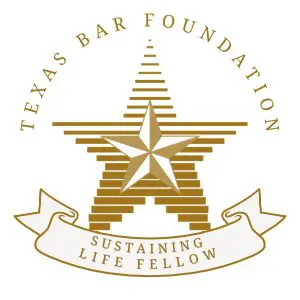 When you are up against the power of the U.S. government and its specialized agencies, you need more than just a good lawyer. You need a defense team that understands how federal prosecutors think, plan, and act.
When you are up against the power of the U.S. government and its specialized agencies, you need more than just a good lawyer. You need a defense team that understands how federal prosecutors think, plan, and act.
At Whalen Law Office, our approach is informed by direct experience inside the prosecutor’s office, giving us a clear advantage when defending medical professionals accused of fraud.
We have handled complex white-collar cases from both sides of the courtroom. This perspective allows us to anticipate the government’s strategy and build a defense designed to undercut their case at every stage. We take proactive steps during the investigation phase, often before charges are filed, to protect your rights and shape the narrative from the outset.
Our healthcare fraud attorneys, including Board Certified Criminal Law Specialist James Whalen, are equipped to navigate the most intricate aspects of healthcare fraud litigation.
We analyze complex medical billing codes, challenge claims about medical necessity, and dissect the government’s evidence. We know how to question the assumptions and expose the weaknesses in the prosecution’s case.
Whether your case stems from a billing oversight or involves allegations of a complex kickback scheme, a healthcare fraud lawyer at our firm is prepared to stand between you and the government.
We serve physicians, pharmacists, lab owners, and other healthcare professionals in Frisco, Plano, and throughout North Texas, with the focused intent to protect your license, your liberty, and your future.
Understanding the Federal Healthcare Fraud Investigation Process
Federal healthcare fraud investigations are slow and deliberate. They are often conducted in secret for extended periods, sometimes for months or even years, while investigators gather evidence.
If you have just learned that you are under investigation, the government likely has a significant head start. Understanding how these investigations progress is the first step toward protecting yourself and your practice.
Target Letters, CIDs, and Surprise Agent Visits
Federal investigations often become visible to the target when a letter arrives from the U.S. Attorney’s Office or an agency like the Department of Health and Human Services Office of Inspector General (HHS-OIG). You might receive a target letter, a grand jury subpoena, or a Civil Investigative Demand (CID), which is a formal request for documents and information.
Unannounced visits from agents with the FBI or HHS-OIG are designed to catch you off guard.
Agents may ask questions in hopes of obtaining statements before you have legal representation.
Everything you say is documented and can be used to support the case against you. The safest response is to remain calm, decline to answer questions, and inform the agents that your lawyer will contact them.
The Role of the Grand Jury in Federal Healthcare Cases
Felony healthcare fraud charges are typically issued through a grand jury indictment. A grand jury is a panel of citizens that hears evidence presented exclusively by the prosecution.
Under the Federal Rules of Criminal Procedure the grand jury process is confidential and entirely controlled by the U.S. Attorney, without judicial oversight at this stage.
Grand juries can issue subpoenas for medical records, billing data, and witness testimony to determine if there is probable cause to bring formal charges.
Responding to Subpoenas for Medical and Financial Records
A federal subpoena for your practice’s records is a serious legal matter that demands an immediate, strategic response. While compliance is legally required, the way you respond can significantly influence your case.
Do not provide any documents before speaking with an attorney. Responding without legal guidance might unintentionally waive important privileges or supply the government with evidence that may be used against you.
An experienced healthcare fraud attorney can review the subpoena for scope and legality, negotiate with the prosecutor, and help you respond in a way that meets legal obligations while safeguarding your rights and patient privacy under HIPAA.
Key Federal and State Laws in Healthcare Fraud Prosecutions
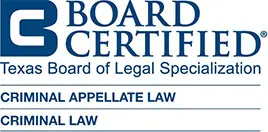 Healthcare fraud allegations can trigger investigations by both federal and state authorities. In Texas, this means you could be prosecuted by the U.S. Attorney’s Office in Plano or by the Texas Attorney General’s Medicaid Fraud Control Unit. A knowledgeable healthcare fraud lawyer must be equipped to defend you in both jurisdictions and understand the nuances of the laws driving these prosecutions.
Healthcare fraud allegations can trigger investigations by both federal and state authorities. In Texas, this means you could be prosecuted by the U.S. Attorney’s Office in Plano or by the Texas Attorney General’s Medicaid Fraud Control Unit. A knowledgeable healthcare fraud lawyer must be equipped to defend you in both jurisdictions and understand the nuances of the laws driving these prosecutions.
Federal Statutes Used in Healthcare Fraud Cases
Federal prosecutors rely on several far-reaching statutes to investigate and charge healthcare providers:
False Claims Act (FCA)
The False Claims Act is the government’s primary civil and criminal enforcement tool. It imposes significant penalties for knowingly submitting false claims to federal healthcare programs like Medicare or Medicaid.
Many investigations begin under the FCA’s qui tam provision, which allows whistleblowers such as former employees or competitors to file lawsuits on behalf of the government and share in any recovery.
Anti-Kickback Statute (AKS)
The Anti-Kickback Statute (AKS) makes it a felony to offer, pay, solicit, or receive anything of value in exchange for patient referrals covered by federal healthcare programs. The statute is written broadly, so even routine business relationships, such as consulting arrangements or marketing fees, can be interpreted as criminal kickbacks if not carefully structured.
Stark Law (Physician Self-Referral Law)
The Stark Law prohibits physicians from referring Medicare patients for certain designated health services to an entity with which they have a financial relationship.
Unlike the AKS, the Stark Law is a strict liability statute, meaning the government does not need to prove intent. Even accidental violations can result in substantial civil penalties and repayment demands.
Texas State Healthcare Fraud Charges
Not all fraud cases are handled in federal court. The Texas Medicaid Fraud Control Unit (MFCU) investigates and prosecutes fraud involving the Texas Medicaid program.
These state-level cases are typically brought under provisions of the Texas Human Resources Code and other state statutes. Convictions can result in felony charges, prison sentences, monetary penalties, and revocation of your medical license by the Texas Medical Board or other professional licensing bodies.
Common Healthcare Fraud Schemes Prosecuted in North Texas
Federal and state investigators are highly active in the Dallas-Fort Worth metroplex, a major hub for healthcare services. Prosecutors are aggressive in pursuing a wide range of alleged fraud schemes. A Texas healthcare fraud lawyer must be ready to address the full spectrum of these allegations.
Improper Billing and Coding Allegations
One of the most common healthcare fraud charges involves allegations of intentional billing manipulation to increase Medicare or Medicaid reimbursement. This can include upcoding, where a provider bills for a more expensive service than was actually performed; unbundling, which involves billing separately for procedures that should be grouped under a single code; and phantom billing, where providers charge for services, tests, or equipment that were never delivered to the patient.
Medical Necessity and Kickback Schemes
Prosecutors also focus on schemes that they believe put profit ahead of patient care.
- Lack of Medical Necessity: Providing and billing for services, tests, or prescriptions that were not medically necessary for the patient’s condition. This is a common allegation in home healthcare and genetic testing fraud cases.
- Illegal Kickbacks: Creating illegal arrangements where physicians are paid in exchange for referring patients for tests, services, or prescriptions. These payments may be disguised as medical director fees, speaker fees, or consulting agreements.
- Prescription Drug Fraud: Knowingly prescribing controlled substances without a legitimate medical purpose. The DEA aggressively targets doctors and pharmacists suspected of contributing to the opioid crisis.
These allegations are taken seriously by federal agencies and can lead to criminal charges, license suspension, and permanent exclusion from federal healthcare programs.
Federal Penalties for Healthcare Fraud Are Severe
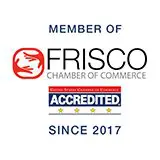 A conviction for healthcare fraud is a felony with life-altering consequences. Federal prosecutors use the U.S. Sentencing Guidelines to seek severe penalties.
A conviction for healthcare fraud is a felony with life-altering consequences. Federal prosecutors use the U.S. Sentencing Guidelines to seek severe penalties.
Federal Prison Time
A conviction under federal healthcare fraud statutes may carry up to 10 or 20 years in prison for each count. In cases involving serious bodily injury to a patient, the sentence can be even longer. There is no parole in the federal system.
Crippling Fines and Restitution
Defendants may be fined hundreds of thousands of dollars. They are also typically ordered to pay full restitution to the government healthcare programs. This debt can run into the millions and cannot be discharged in bankruptcy.
In addition to criminal penalties, the False Claims Act imposes civil liability that includes treble damages, meaning three times the amount of the alleged fraud, along with fines for each false claim submitted.
Professional and Personal Consequences of a Conviction
The impact of a federal felony conviction extends well beyond prison and fines.
- Mandatory Exclusion: The HHS-OIG can exclude you from participating in Medicare, Medicaid, and all other federal healthcare programs. This is a career-ending sanction.
- Loss of Professional License: A conviction will be reported to the Texas Medical Board or other state licensing bodies, which will likely lead to the suspension or revocation of your license to practice.
- Asset Forfeiture: The government can seize assets it believes are connected to the alleged fraud, including your home, bank accounts, and business property.
A conviction not only threatens your freedom but can also dismantle your career, finances, and professional reputation.
How a Strategic Defense Can Fight Healthcare Fraud Charges

A passive, “wait and see” approach often leads to conviction. A strong defense starts immediately. The goal is to push back against the government’s version of events and make them prove every element of the case beyond a reasonable doubt.
Focusing on Lack of Fraudulent Intent
In most healthcare fraud cases, intent is everything. Prosecutors must show that you knew your actions were fraudulent and that you intended to deceive the government. But not every billing error is a crime.
Misunderstanding complex and constantly changing Medicare rules or relying on good faith on the advice of a billing specialist may be a complete defense. A good faith defense argues that you lacked fraudulent intent, and it is often one of the most effective strategies.
Challenging the Government’s Evidence
The government’s case is usually built on billing data and expert witness testimony. Your defense needs to closely scrutinize the story they are telling.
This involves retaining defense experts in medical billing and specific medical fields to challenge the government’s claims about medical necessity and coding. A strong defense uncovers favorable evidence and exposes credibility issues with cooperating witnesses, who may have received leniency in return for their testimony.
Under Investigation for Healthcare Fraud? We Are Here to Help
If you are a medical professional being investigated for healthcare fraud, you may be facing serious legal and personal challenges. Your freedom, your career, and your family’s future could all be affected. While the government works to build its case, waiting to act may limit your options.
You do not have to face this situation on your own. A skilled legal team can help you understand what to expect, protect your rights, and begin preparing a strong defense right away.
Before speaking with investigators, contact Whalen Law Office at (214) 368-2560 for a confidential and cost-free consultation. We are here to help you move forward with confidence and clarity.
Whalen Law Office – Frisco Location
9300 John Hickman Pkwy #501
Frisco, TX 75035
P: (214) 368-2560
